No Cap Space went long on Wednesday night breaking down the playoff matchups between the Fever and Sun as well as the Lynx vs. the Mercury. You can find it all here below and in podcast form. Keep reading past for the column.
Five and a half months of speaking about the same topic.
Exhausting, isn’t it? Let this be the last from me for awhile.
As the Indiana Fever begin their offseason, we’re left with essentially a wasteland of dialogue and a mountain of awful takes from every end of the spectrum. It came to one final crescendo during Game 2 of the First Round of the WNBA Playoff series between the Fever and the Connecticut Sun. Mohegan Sun Arena appeared to be relatively split in terms of its allegiance, with plenty of Fever — and Clark — fans in attendance.
On its face, the chippiness on the floor felt like the type of environment WNBA Commissioner Cathy Engelbert wants: a budding rivalry between two talented teams. Dewanna Bonner and Clark exchanged words and a couple shoves after a three point attempt by the rookie and a drop in her landing space by the Sun vet. Marina Mabrey channeled Hailey Van Lith as she drilled the dagger three over the Fever’s young star while the action in the paint was ferocious and competitive all night. The problem is, while the players can approach this game with an apolitical lens, the same can’t be said for the fans filling the arenas.
Caitlin Clark has been a somewhat odd phenomenon. Many say that she is an entry point into fandom of women’s basketball, which is true and good. All of us had a player lead us in, whether it was Cheryl Miller, Diana Taurasi, Candace Parker or A’ja Wilson, to name a few. But, in past years, there have been plenty of Great White Hope type players that have entered the league. Some, like Sabrina Ionescu, have worked to be explicitly apolitical the same way Clark has been. Others, like Sophie Cunningham, while not moving the dial from a gameplay perspective have made a niche audience for themselves via their political worldviews. But if it were just about finding players to match your politics, they’d have more motion. Enter Clark, who arrives at the confluence of several factors that make this situation what it is. Adding to the fascination of the phenomenon is the coinciding change in Twitter ownership — long a bastion of WNBA Twitter and online hang out for players in the league — and how Elon Musk’s mismanagement of the platform has allowed (by design, it appears) for a much more toxic, bot-ridden and decidedly slanted clientele to rule unmoderated.
Clark is, at least on the surface, fairly apolitical. All the while, bad faith actors have essentially turned her into an avatar for grievance and a means to bully marginalized people and communities. Even though she’s spoken out against this type of behavior before, there’s never been an outright demand to cease using her name to advance such agendas. In essence, there’s been a “this is bad and unacceptable” and not an outright “stop”. That difference between passive and active voice is notable. It’s a strategy that is rooted in a degree of logic but may have spun out of control in a way that now she may have to address. Because look, deplatforming works (to a degree). There’s plenty of examples in recent years of provocateurs that lose their primary audience source and are never heard from again. Essentially, if you don’t feed the trolls, they die. The issue is when everyone else legitimizes the trolls and now you’re left to answer for them.
I don’t think Clark needs to speak publicly to take action on behalf of the league. It’s even worth offering a modicum of grace given that she’s a 22 year old rookie and may not yet have the wisdom or knowledge of understanding her platform and power. It wouldn’t be the first time an athlete has to grow up on the fly.
But while it is important to note her privilege within the WNBA as a straight white woman, she is still operating within an inherently capitalistic business structure. In short, she may enjoy privileges that, say, DiJonai Carrington does not but they are both still labor at the end of the day. Sadly to the WNBA, all work contributions aren’t made equal. Never was this exemplified more than last night when, after a year of torrents of online abuse directed at players from Clark to her own Fever teammates to Angel Reese, Carrington and many others, the league finally released a statement condemning the behavior many have been sounding the alarm about. It looks especially bad because of three things:
Cathy Engelbert could’ve said this on CNBC and chose not to.
It’s hard to feel like this has less to do with Alyssa Thomas’ postgame comments and more to do with Clark being accosted by a fan mid game.
It took literally the entire season for the W to take a pretty easy public stance of “don’t be racist to our players.”
Here’s where there’s some nuance and where I’m sure some may disagree.
While Clark’s silence has played a role in the amplification of these bad faith actors, I think the players are wrong in directing their ire specifically towards Clark. As shown by those ‘fans’ reactions to the rookie innocuously liking Taylor Swift’s Instagram post endorsing Kamala Harris for President, they’ve made it clear they aren’t here for her, the WNBA or women’s basketball for that matter. They’re here to not see Clark as a person with agency but instead a muse for them to do what they’ve always wanted to do: hurl racist, homophobic and worse under the guise of normal sports trash talk.
And again, we’re drawing a clear line between Clark/Fever fans and those who call themselves ‘fans’ but are really nothing of the sort.
This is not to absolve other fanbases or to paint Clark’s fanbase a certain way or even to insinuate this doesn’t happen with other players or sports. But we aren’t talking about them right now. The pattern is the pattern.
Stephanie White was spot on in her postgame press conference in saying that we’ve allowed trolls and grifters to dominate this season’s discourse. It’s a tactic leftover from political media, which worked to perfection in 2016. A talking point originates on the fringe, makes it’s way to a cable network, sparks social media discussion, becomes A Block material and now the ‘Tiffany Networks’ of ABC, NBC and CBS are running that discussion point on their flagship shows from Good Morning America to the Today Show. Unfortunately in this process, there’s been a lot of hypocrisy coming from my friends and colleagues in media who want to have a face they wear for TV and a face they wear when they’re online. But does the righteous indignation really matter if ultimately you’re contributing to the SEO machine and making, in essence, the same compromise you’re accusing Clark of in prioritizing financial gain over morals and ethics? The counter is it always matters to speak out but I guess my response is if your content is just the flip side of the argument in the same bad discourse…aren’t you still perpetuating that same discourse and allowing it to fester and persist?
That dialogue has become so muddled and complicated it actually meant White’s comments could be taken a number of ways. You could hit the First Take guys for it, admonishing Stephen A. Smith and Shannon Sharpe for espousing generally problematic talking points and disingenuously bringing on Monica McNutt or Andraya Carter to legitimize their debate. You could also see it as a warning to White’s own players, who have spent a lot of time online engaging with people on Twitter. If that’s your read, I’d suggest you take a second to even try and walk a mile in their shoes. It’s easy to block and walk away from the screen but I can’t imagine I’d last very long seeing even just one death threat or email dripping with borderline cartoonish racism. Players are human. I don’t blame them for being frustrated. Even Clark has dealt with a tidal wave of abuse, from being referred to as ‘Detective Stabler’ (a dig on her looks being masculine and resembling male actor Chris Meloni) to having her own compromising pictures leaked on the internet. No one has been safe from it this year.
With everything in mind, it feels like putting the onus on Clark is misguided. The league and its franchises clearly aren’t holding up their end of the bargain. Players don’t feel safe. It’s been clear since early in the season when a local paparazzo ran up on Chennedy Carter. While it’s an easy situation to minimize, I would again urge seeing it from their view. And if there’s anything therapy has taught me is that you don’t have to agree with someone’s viewpoint to validate their hurt and perspective.
Here’s where Clark doesn’t need words but can win a battle through action.
Angel Reese revealed in her exit interview that she has the ear of her General Manager, as she should. Stories circulated earlier in the summer that Chicago’s decision to invest in a new practice facility was, at least in part, driven by her pushing on ownership to do so. A’ja Wilson and the Aces success led to Mark Davis wanting to give his franchise the best that money could buy. Players are exercising power and it’s a fair argument the Clark is already one of the most powerful players in the league. She doesn’t need to make a statement nor does she have to become Paige Bueckers overnight. But what she needs to realize — and maybe it’s something that comes with age seeing as how she’s still just 22 — is that her team is actually 143 other players, not just the 14 on the Fever. While she enjoys privilege within the labored class, she is still labor within the WNBA’s system. A proper utilization of her platform would be leveraging the league’s covetousness of her audience to demand owners step up and provide more security, better conditions for players on the road or more serious event staffing in arenas. She could push the league publicly or privately to institute a zero tolerance policy and empower players to feel comfortable calling out abusive fans as she did in Mohegan Sun Arena. The league, for their part, could do a better job promoting in-arena security numbers and, you know, taking a stand on behalf of its labor force. It’s impossible to think that owners and venue operators didn’t see what happened this year.
Caitlin Clark doesn’t have to be a vocal activist and it’s unfair to ask her to do that if she doesn’t want to. And, at this point, would it even matter? Or would it be considered a day late and a dollar short? Instead, it might behoove her to utilize her power softly and in other ways. The Players Association, now more than ever, needs this next generation of athletes to be tough at the negotiating table. Nneka Ogwumike’s exit interview in Seattle where she said that her biggest priority is getting a higher voter turnout for a potential CBA opt-out is interesting considering the 90 plus percent turnout for the 2020 deal. Someone like Clark can be a major advocate in that labor fight, as she is the needle in many ways for the financial future of the WNBA.
Within capitalism, the highest levels of power benefit most when the labor fights amongst itself. It’s been a political strategy in practical use for decades, especially in the United States. While players have pointed the finger firmly at Clark, it would be fair for her to point out the futility in speaking out against people that don’t see her as a person to begin with. In the same vein, she does have work to do in proving to others within this league that she has an interest in more than herself. Being an economic tide raiser is one thing but a true legacy as a trailblazer is forged in how you use your power to make things better for who comes next.
If she has any interest in that, then this off-season would be a good time to work behind the scenes and leverage her power to push the W toward actions that help better guarantee the safety of her and her peers. If not, then it’s clear that the intention is just to play basketball. Which is fine but also means you’ll be liable for that critique your whole career. And people wouldn’t be wrong for doing it.


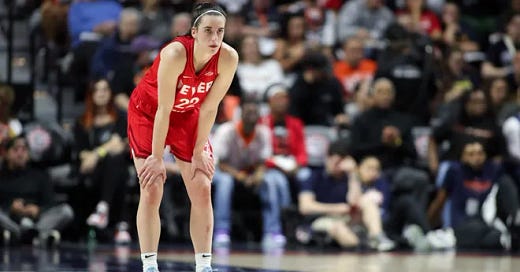
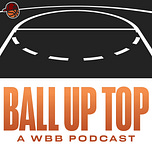
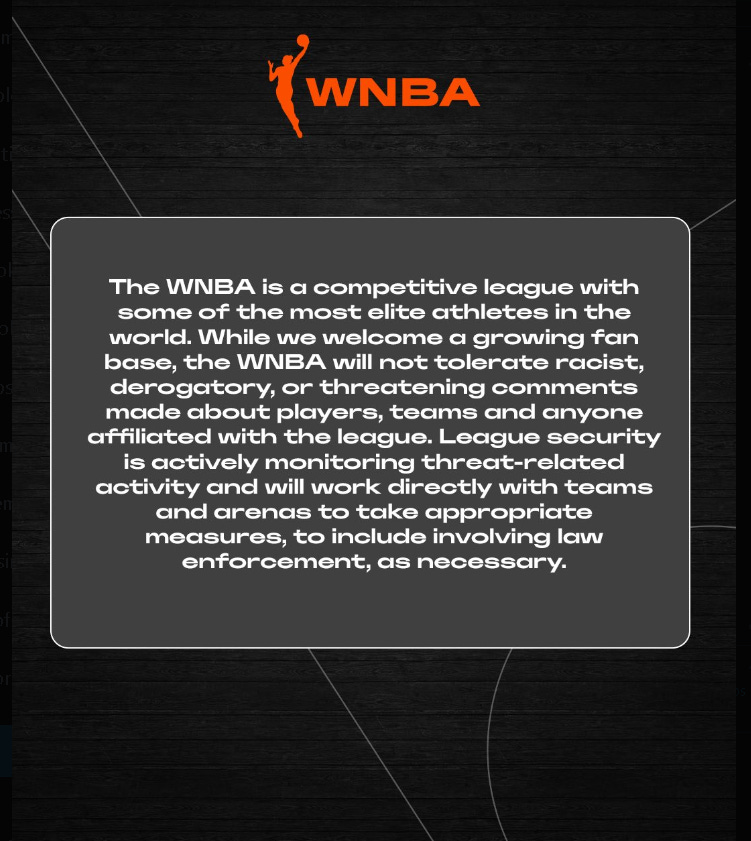



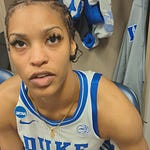
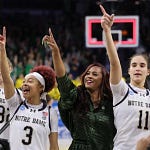
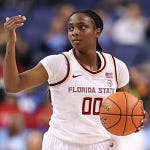
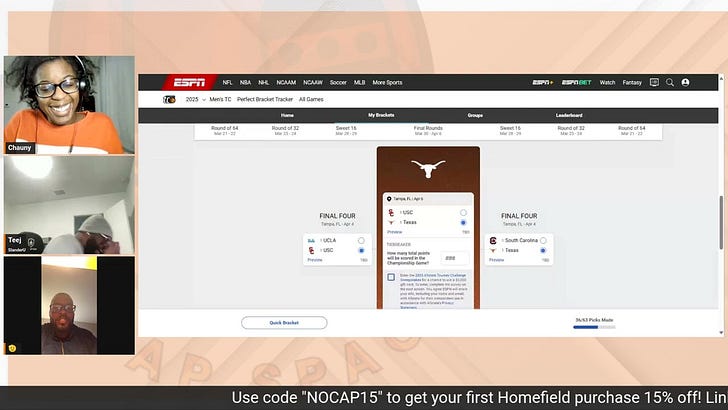

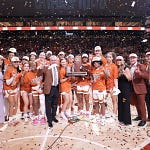
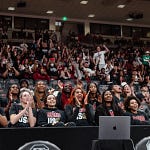

Share this post